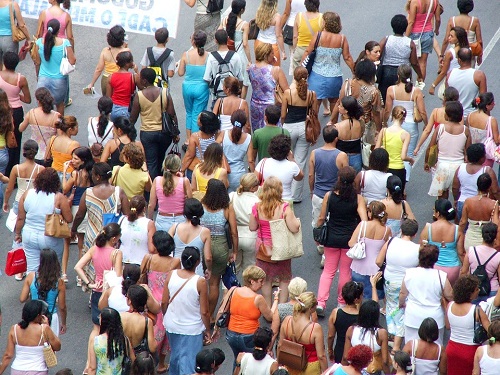Political polarization destroys social cohesion and trust, according to a study
These are the findings of a study by Mariano Torcal and Sergio Martini, researchers with the Research and Expertise Centre for Survey Methodology. The study, that deals with Spain and Portugal, has been published in the journal Party Politics.
Social cooperation is an essential element in the functioning of societies and democracies. This cooperation depends to a great extent on the degree to which citizens trust each other for all types of activities, with regard to good economic, social and political development.
 But, to what extent does the political life of a country and its conflicts affect social trust? This aspect has hardly been discussed, since for a long time it was thought that it was an essential cultural feature, characteristic of different societies. In short, that it was consubstantial to our basic cultural systems.
But, to what extent does the political life of a country and its conflicts affect social trust? This aspect has hardly been discussed, since for a long time it was thought that it was an essential cultural feature, characteristic of different societies. In short, that it was consubstantial to our basic cultural systems.
So, for many years, it was claimed, for example, that the Spanish are as they are, and that it is impossible for them to live together peacefully and harmoniously. It seems that after several years of consensus, the Spaniards are returning to the “cultural” pattern of conflict and disintegration.
However, in a study carried out on Spain and Portugal by Mariano Torcal and Sergio Martini, researchers from the Research and Expertise Centre for Survey Methodology at UPF (RECSM-UPF) published in the prestigious journal Party Politics, it is demonstrated that this does not have to be so: according to the study, there is nothing consubstantial to the culture of societies that makes their citizens more or less given to confrontation and disruptive conflict.
Political and identity information determines trust in front of strangers
In an online survey experiment carried out in these two Iberian countries in successive waves between 2012 and 2013, the authors show, with an “anonymous trust game” between successive interviewees, how the decisions that citizens make when acting before or trusting strangers are conditioned by the political and Identity information they receive in respect of their successive anonymous interlocutors. This means that if all that we know about the anonymous interlocutor who identifies with or votes for a certain different political party from the interviewee, social behaviour and social trust decline remarkably. Conversely, the opposite happens if it turns out that the anonymous interlocutor is of the same partisan identity. This is seen clearly in Figure 1 for the two countries where the effect of this “treatment” is shown.
Now, this effect is stronger in Spain than in Portugal, possibly a result of the greater degree of political polarization that exists in our country (according to objective polarization indicators). This means that, the greater the political polarization, the greater the disruptive effect on interpersonal trust, and, therefore, on social cohesion. The effect of “ours” versus “others” is overdimensioned, and increases suspicion and mistrust.
National, ideological and social class identities are less relevant The authors of the study, moreover, repeat the experiment successively and randomly in the different waves of the survey, but for other identities: national/regional, ideological, and social class. What is interesting is that the effects on social trust with these identity tags (for example, Catalan versus madrileño (from Madrid) or Andalusian, are not as important, and of course, hardly comparable to the effects of partisan identities (see for example Figure 4). The same goes for class or even ideological conflict: nothing like the disruptive effect that partisan identities can produce. But, what are the implications of all this? This study shows that the political parties and their actions have an essential effect on a society’s degree of social cooperation and social trust. That means that the political parties can make societies more or less harmonious based on the conflict that the parties themselves encourage and bring about. Therefore, political polarization not only affects political conflict and the electoral arena, but it may constitute a fundamental element of the destruction of the degree of social cohesion. Identities in themselves do not cause the destruction of cohesion, but it all depends on the politicization by the political parties, which have an enormous ability to affect this degree of consensus.
As Mariano Torcal, full professor of Political Science at UPF and director of the study states, “the economic downturn and its effects on inequality, or the presence of certain historical identity conflicts present in the Spanish society, may have affected the social cohesion of this country; but what is really destroying it is the growing radicalization of the political players with respect to some of these issues”.
Professor Torcal adds that “the parties must cease to adopt short-term electoral strategies and begin to implement a sincere and responsible exercise of dialogue for good functioning, not only of the democratic system; and even more important, also to be able to mitigate or stop the growing deterioration of the Spanish people’s social trust and cohesion. Without this we will find it hard to prosper”.
Reference work: Sergio Martini and Mariano Torcal (2016). “Trust across political conflicts: evidence from a survey experiment in divided societies“. Party Politics, pp. 1-14. DOI: 10.1177 / 1354068816685933
